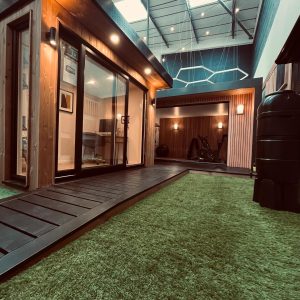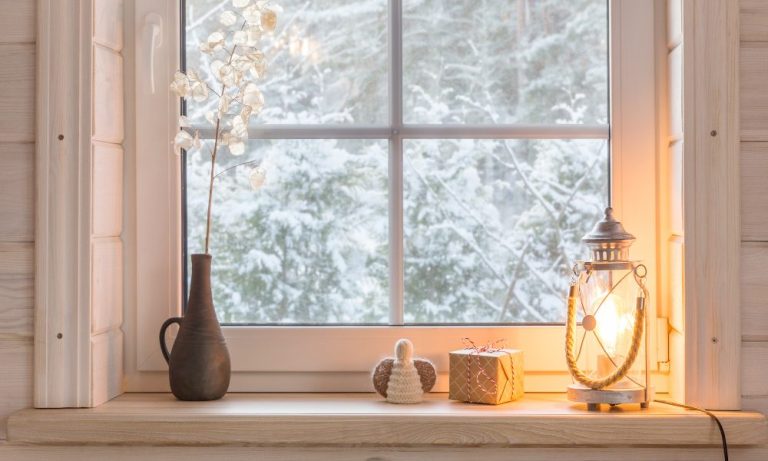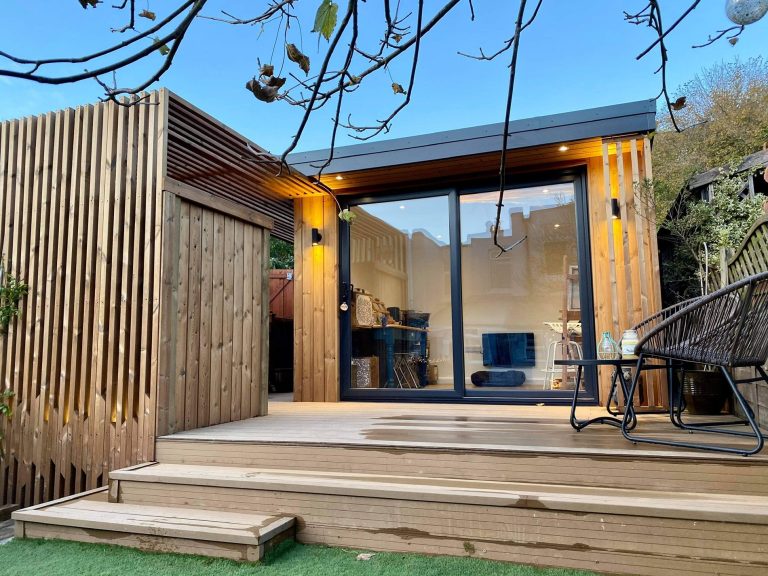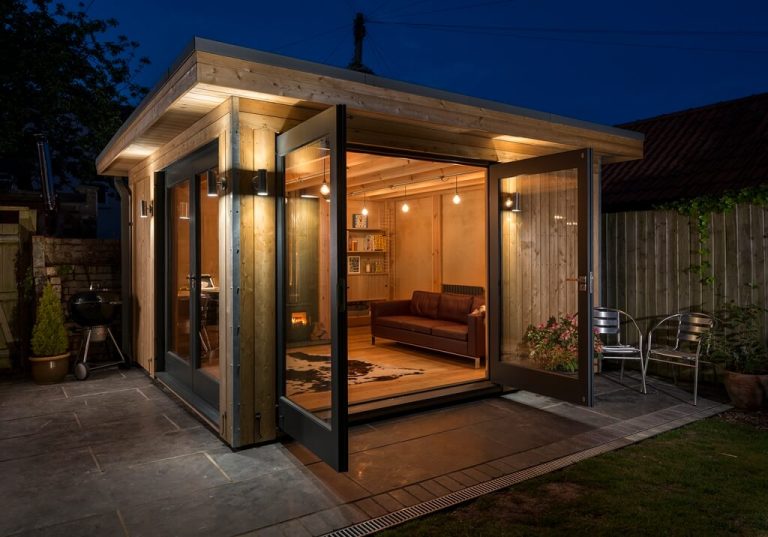In this article, we will explore how modern technology can make garden rooms more energy-efficient, focusing on solar panels, smart thermostats, energy-efficient appliances, and sustainable building materials. Whether your garden room is used as a home office, gym, or relaxation space, energy-efficient solutions can lower your carbon footprint while reducing energy bills.
Why Energy Efficiency Matters in Garden Rooms
Garden rooms, by their nature, are often separate from the main house, which means they may not be connected to the same heating, cooling, or electrical systems. Without proper planning, these structures can become energy drains, especially when used year-round. Energy-efficient solutions help maintain comfort while minimizing energy consumption.
Sustainability is a growing concern for homeowners, and creating energy-efficient garden rooms supports broader environmental goals. Whether you’re striving for a net-zero home or simply aiming to cut down on utility costs, garden rooms offer an excellent opportunity to implement energy-saving technologies.
Solar Panels: Powering Your Garden Room with Renewable Energy
One of the most effective ways to increase energy efficiency in a garden room is by using solar panels. Solar panels convert sunlight into electricity, providing a renewable energy source that can power your garden room’s lighting, heating, cooling, and appliances.
Benefits of Solar Panels for Garden Rooms
- Reduced Energy Costs: Solar panels can significantly reduce or even eliminate electricity costs for your garden room. By harnessing solar energy, you rely less on the grid and benefit from free power once the initial investment is recouped.
- Environmental Impact: Solar energy is renewable and reduces the carbon footprint associated with electricity production. This makes it a key component of a sustainable garden room.
- Independence from the Grid: For garden rooms located far from the main house, solar panels can provide an independent power source, reducing the need for extensive wiring and infrastructure.
Types of Solar Panel Systems
When considering solar panels for a garden room, there are two main systems to choose from:
- Grid-Tied Systems: These are connected to the main electrical grid and allow you to sell excess electricity back to your utility provider. If your garden room produces more energy than it consumes, this system lets you earn credits while remaining connected to the grid for backup.
- Off-Grid Systems: Ideal for garden rooms located in remote areas, off-grid systems store energy in batteries. These systems offer complete independence from the grid, but require careful planning to ensure enough energy is stored for cloudy days or high-demand periods.
Solar Panel Installation Considerations
When installing solar panels for your garden room, consider the following factors:
- Roof Orientation: For optimal energy generation, the roof of your garden room should face south or southwest, with minimal shading.
- Space Availability: Ensure your garden room’s roof has enough space to accommodate the necessary number of panels. For smaller roofs, high-efficiency panels may be a better option.
- Local Climate: The amount of sunlight in your region will impact the efficiency of solar panels. In areas with frequent overcast weather, you may need a larger system to compensate for reduced sunlight.
Smart Thermostats: Precision Climate Control for Optimal Comfort
Heating and cooling can be one of the biggest energy drains in a garden room, especially if it’s used year-round. Smart thermostats are an ideal solution for maintaining a comfortable temperature while minimizing energy consumption. These devices use sensors, data analytics, and automation to optimize heating and cooling efficiency.
How Smart Thermostats Work
Smart thermostats go beyond traditional programmable thermostats by learning your schedule and preferences. They can automatically adjust the temperature based on when you’re using the garden room, eliminating the need to heat or cool the space when it’s empty.
For example, if your garden room serves as a home office, the smart thermostat can warm up the space just before you start work in the morning and shut off in the evening when the room is no longer in use.
Energy Efficiency Benefits of Smart Thermostats
- Adaptive Learning: Smart thermostats analyze patterns of use and adjust the temperature accordingly. This prevents energy wastage, especially during hours when the garden room is unoccupied.
- Remote Control: With a mobile app, you can control the temperature in your garden room from anywhere. This allows you to turn off heating or cooling if you forget, or preheat the room before you arrive.
- Energy Usage Reports: Many smart thermostats provide insights into energy consumption, helping you identify periods of excessive use and adjust your habits to save energy.
Leading Smart Thermostat Brands
- Nest Thermostat: Known for its learning capabilities and sleek design, Nest Thermostats adapt to your routine and automatically reduce energy consumption.
- Ecobee: With built-in room sensors, Ecobee offers advanced temperature control, ensuring every corner of your garden room remains comfortable without overusing energy.
Energy-Efficient Appliances: Reducing Power Consumption in Garden Rooms
For garden rooms equipped with appliances, from mini-fridges to entertainment systems, choosing energy-efficient models can make a significant difference in overall energy consumption. Modern appliances are designed to use less power while maintaining high performance, helping you stay eco-friendly without sacrificing convenience.
The Role of Energy Star Certified Appliances
Energy Star is a program established by the U.S. Environmental Protection Agency to promote energy efficiency. Appliances with the Energy Star label are certified to use less electricity and water than standard models, reducing both environmental impact and utility costs.
Energy-Efficient Appliances for Garden Rooms
- Mini Refrigerators: If your garden room includes a small kitchen or refreshment area, an Energy Star-rated mini-fridge can drastically reduce power usage compared to older models.
- Televisions and Entertainment Systems: Smart TVs and sound systems often come with energy-saving modes that automatically reduce power consumption when not in use.
- LED Lighting: Switching to LED lighting throughout your garden room is one of the simplest ways to improve energy efficiency. LED bulbs use up to 75% less energy and last significantly longer than traditional incandescent bulbs.
Appliance Automation for Energy Savings
In addition to choosing energy-efficient appliances, automation can further reduce energy consumption. Smart plugs and power strips can shut off appliances when they’re not in use, ensuring that standby power (often referred to as “vampire energy”) doesn’t inflate your electricity bills.
Sustainable Building Materials: A Green Foundation for Your Garden Room
The materials used to construct your garden room play a critical role in its energy efficiency. Sustainable building materials not only reduce environmental impact but also improve insulation, which can help lower heating and cooling needs.
Eco-Friendly Insulation
Proper insulation is key to maintaining a comfortable temperature in your garden room without overusing energy. Sustainable insulation materials include:
- Sheep’s Wool: A natural and renewable insulation material, sheep’s wool is highly effective at regulating temperature and moisture. It’s biodegradable, making it an eco-friendly option.
- Recycled Cotton: Often made from recycled denim or other cotton products, this insulation is a sustainable alternative to fiberglass and provides excellent thermal resistance.
- Cellulose: Composed of recycled paper products, cellulose insulation is treated for fire resistance and provides strong thermal performance, keeping heat in during winter and out during summer.
Sustainable Construction Materials
- Bamboo: Fast-growing and highly renewable, bamboo is an excellent alternative to traditional wood for garden room flooring and walls. It’s durable, eco-friendly, and can be sourced sustainably.
- Reclaimed Wood: Using reclaimed wood not only reduces deforestation but also adds a rustic, unique look to your garden room. Reclaimed wood can be sourced from old buildings, barns, and other structures.
- Recycled Steel: If you’re building a more modern garden room, using recycled steel can reduce the need for new resources. Steel is incredibly durable and often comes from recycled sources.
Energy-Efficient Windows and Doors
Windows and doors are another critical area where energy efficiency can be improved. Poorly insulated windows and doors can lead to heat loss in the winter and excess heat in the summer, increasing the need for heating and cooling.
Double-Glazed Windows
Double-glazed windows consist of two panes of glass with a layer of gas in between. This design significantly improves insulation, reducing heat transfer and making your garden room more energy-efficient. Double-glazing also helps with soundproofing, which can be beneficial if your garden room is used as a quiet office space.
Energy-Efficient Doors
Energy-efficient doors are designed to prevent drafts and minimize heat loss. Look for doors with good insulation properties and weatherstripping to seal any gaps. Sliding glass doors with double-glazing can also be a stylish and efficient option for garden rooms.
Building a Sustainable, Energy-Efficient Garden Room
As garden rooms become increasingly popular, homeowners are looking for ways to make these spaces as energy-efficient and eco-friendly as possible. From renewable energy solutions like solar panels to smart thermostats, energy-efficient appliances, and sustainable building materials, there are numerous technologies and innovations available to enhance the sustainability of your garden room.
By investing in energy-efficient solutions, you not only reduce your environmental impact but also save on long-term utility costs, making your garden room a comfortable, eco-friendly, and cost-effective addition to your home. As technology continues to evolve, the future of garden rooms is undoubtedly geared toward even greater sustainability and energy efficiency, helping homeowners meet the challenges of climate change while enjoying the benefits of modern, functional spaces.








